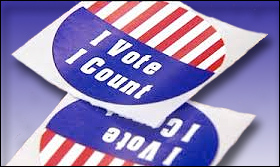By Jim Ellis
 July 13, 2018 — Much has been written over the past few elections cycles about voting enthusiasm and whether it is a predictive political factor. It has been seemingly apparent that the party members most interested in participating in an election, most particularly for a midterm or special election vote, generally see its candidates enjoy the greater success.
July 13, 2018 — Much has been written over the past few elections cycles about voting enthusiasm and whether it is a predictive political factor. It has been seemingly apparent that the party members most interested in participating in an election, most particularly for a midterm or special election vote, generally see its candidates enjoy the greater success.
Yesterday, we looked at the extensive just-released Survey Monkey-Axios Media data that covered 13 US Senate races. The combined number of states also hosts a minimum of 15 competitive US House races. To re-cap, while the Survey Monkey analysts posted results under various turnout models in each of the tested states, it generally became clear about which candidate has the current advantage from the Senate contests in question.
Democrats were performing well in the Midwest and Mid-Atlantic regions, where incumbents in Pennsylvania, Michigan, Wisconsin, Ohio, and West Virginia all held substantial leads over their Republican opponents.
The GOP held the upper hand in Indiana and North Dakota challenge races. In the South, Republican Gov. Rick Scott looks to be topping Florida Sen. Bill Nelson, and US Rep. Marsha Blackburn (R-TN) has opened a substantial lead over Tennessee former Gov. Phil Bredesen.
Turning to the West, Democrats are moving ahead in both Arizona and Nevada and securely lead in Montana.
The Missouri contest between Sen. Claire McCaskill (D) and Attorney General Josh Hawley (R) stretches from a five-point Democratic lead all the way to a five-point Republican advantage depending upon the turnout model.
The Survey Monkey pollsters tested voter enthusiasm in all 13 states. They asked the following question:




